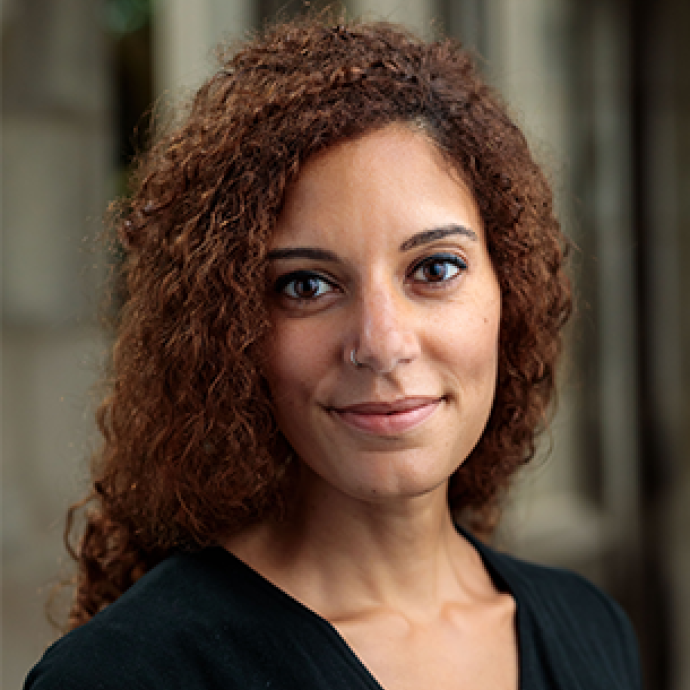The faculty at the University of Chicago Graduate School of Business today approved changes in the school's curriculum that will add flexibility to an M.B.A. program already known for allowing students wide latitude in course selection.
The faculty also voted to add a new academic concentration in analytical management and require all students in the evening M.B.A. program and weekend M.B.A. program to take a leadership development course similar to one required of full-time students.
"We had the most flexible M.B.A. program in the world even before these changes, and now we dialed up that flexibility further," said Dean Edward Snyder. "Our philosophy remains that our students own their experience here and each student should play the major role in determining the course of study that is best for him or her."
The changes are effective for students entering in the Summer of 2009.
Graduation requirements for students in the full-time M.B.A. program remain unchanged and include nine required courses, 11 electives and a leadership course, however more approved substitute classes have been added to satisfy the nine required courses.
To meet the 11 elective requirements students can choose from several hundred courses at the business school and other departments of the University.
The addition of the leadership development course requirement for students in the evening M.B.A. program and weekend M.B.A. program means those students will take 21 courses, the same as full-time students. The new course requirement for part-time students was enacted because the faculty felt it is essential that all graduates be exposed to a well-executed leadership program that includes a self-assessment component coupled with opportunities to enhance interpersonal skills.
Some of the new courses in the required portion of the curriculum are more rigorous as a result of the higher quality of students entering the program, Snyder said. "We have added a hybrid finance class containing five weeks of corporate finance and five weeks of investments that will allow all the standard corporate and investment classes to be taken up a notch in difficulty."
The curriculum changes apply to students in the full-time M.B.A. program, evening M.B.A. program and weekend M.B.A. program.
The faculty also approved changes that make the degree requirements easier to understand. The three foundation areas of accounting, microeconomics and statistics remain the same, however the requirement to take breadth and general management courses is replaced by selecting classes representing functions (finance, marketing, and operations), management (decisions, people, and organizations), and the environment in which firms operate.
"A flexible curriculum is important because there is no single curricular path to career success," Snyder said. "Research on the career paths of our alumni by Professor Marianne Bertrand shows that successful graduates varied their coursework." Such variation would not be possible under a lock-step M.B.A. experience, he said.
"Although we are giving students more flexibility, this is not a radical departure from our curriculum. In our discussions with recent alumni, current students, and corporate recruiters, the existing curriculum consistently received high marks," said Steven Kaplan, Neubauer Family Professor of Entrepreneurship and Finance and co-chair of the 11 member curriculum review committee comprised of senior faculty. "For example, more than 92 percent of our recent graduates say they are satisfied or very satisfied with the business education they received here," he said.
"The faculty affirmed the approach we have been using for many years, while the curriculum changes allow students to increase the intensity of their M.B.A. studies," said Robert Gertner, Wallace W. Booth Professor of Economics and Strategy, the other co-chair of the committee.
Analytic management was added as the school's 14th academic concentration because "statistical analysis and analytic modeling are becoming more common across a diverse set of managerial problems," Gertner said.
In addition to analytic management, Chicago GSB students can graduate with an academic concentration in accounting, econometrics and statistics, economics, entrepreneurship and finance. Other choices are analytic finance, general management, human resource management, international business, managerial and organizational behavior, marketing management, operations management and strategic management.
The University of Chicago Graduate School of Business is one of the leading business schools in the world. The school's faculty includes many renowned scholars and its graduates include many business leaders across the U.S. and worldwide.
The Chicago Approach to Management Education is distinguished by how it leverages fundamental knowledge, its rigor, and its practical application to business challenges.
Chicago GSB offers a full-time M.B.A. program, an evening M.B.A. program, a weekend M.B.A. program, a Ph.D. program, open enrollment executive education, and custom corporate education.










 —Prof. Chuan He
—Prof. Chuan He
